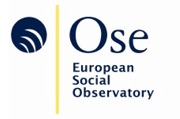The Public Policy and Management Institute (PPMI) and the European Social Observatory (OSE) wrapped up the European Commission-funded assessment of the PROGRESS Peer Reviews in Social Protection and Social Inclusion. OSE and PPMI researchers worked closely together with a range of EU experts, such as Volker Busch-Geertsema (Association for innovative Social Research and Social Planning in Bremen, GISS ), Mary Daly (Queen's University Belfast), Romana Careja (Köln University), Freek Spinnewijn (FEANTSA) and Timo Weishaupt (University of Mannheim). Together, they worked towards a better understanding of the role the Peer Review Programme has played in stimulating innovation and policy learning in social inclusion and social protection policies across the EU.
The final report reveals that Peer Reviews sometimes entail ‘mirror’ effects and lead to reversing “tutor” and “learner” roles. Peer Reviews sometimes provide legitimation for the reviewed programme and move certain problems higher on the (EU/domestic) agenda. The report provides policy recommendations which should help to improve the Peer Review process in the future. The analysis consisted of four main tasks:
- A systematic overview and mapping of the 58 Peer Reviews conducted between 2004 and 2010;
- Study of the contribution of the Peer Reviews to ‘consensus framing’ through a systematic analysis of the messages coming out of the reviews;
- Follow-up of the Peer Reviews on a particular policy or project in the host country, focusing on 10 selected Peer Reviews: United Kingdom (the Rough Sleepers Unit and the Sure Start Progamme), Czech Republic (Neighbourhoods Threatened by Social Exclusion), Belgium (Minimum Income), Spain (Combat Discrimination), Ireland (NAPInclusion Social Inclusion Forum), Sweden (Freedom of Choice and Dignity for the Elderly), Slovakia (Social Impact Assessment), Norway (Active Inclusion) and Germany (Quality Long-term Care);
- Study of the extent to which, under what circumstances, from whom and by whom learning has taken place during those Peer Reviews.
OSE team members included in this project: Dalila Ghailani, Régine Kiasuwa, David Natali, Ramón Peña-Casas and Bart Vanhercke.
